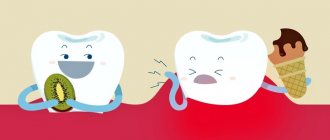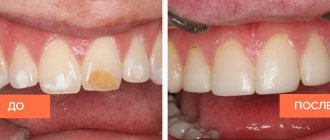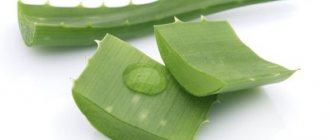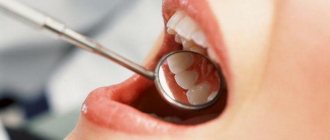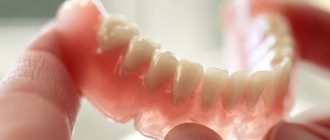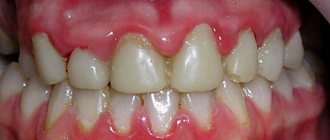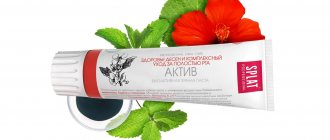Author of the article:
Soldatova Lyudmila Nikolaevna
Candidate of Medical Sciences, Professor of the Department of Clinical Dentistry of the St. Petersburg Medical and Social Institute, Chief Physician of the Alfa-Dent Dental Clinic, St. Petersburg
Acid teeth whitening is still a very popular method of home enamel lightening. But this does not mean that such a procedure is effective or safe. Many people retain the stereotype that natural remedies are not harmful to health and can be used in any dosage and concentration.
In fact, it all ends with increased tooth sensitivity, irritation of the mucous membranes and other troubles.
If you do not want to take risks, it is better to choose professional home or office whitening methods. Of course, these procedures will be much more expensive than a couple of lemons and apples, but think about it, they can turn out to be much cheaper than treating your teeth in case of an unpleasant outcome.
In addition, there is another affordable solution - using specialized whitening pastes. This solves several problems at once: saving you money, maintaining health and whitening.
These products lighten enamel much more effectively than traditional ones. Although they do not allow you to achieve a bright white color, as with professional procedures.
Does lemon water harm our teeth?
Warm water with lemon in the morning is a popular ritual for people leading a healthy lifestyle.
And although this drink has a great effect on our body, unfortunately, it can also harm our teeth. Lemon water awakens the digestive system and strengthens the immune system. Another reason to start the day with a glass of this drink is the fact that lemon belongs to the group of alkaline foods, thanks to which it helps balance the pH of the body.
Helps one and harms another
Unfortunately, lemon water has a negative effect on our teeth. Contact with acidic drinks is not comfortable for the teeth and can weaken tooth enamel. Fruit juices, including water with lemon, destroy the protective cover that is located on the teeth, it protects the enamel from acid erosion.
How to protect tooth enamel without giving up a dose of health?
Correct drinking regime
In the early stages of kidney failure, there is no need to limit the amount of fluid you drink. However, as the disease worsens, hydration will need to be monitored.
Between dialysis sessions, fluid can accumulate in the body. Too much fluid can cause difficulty breathing, which is a medical emergency.
Your doctor will tell you how much fluid you need to drink each day. Foods that contain a lot of water, such as soups, jellies, ice cream, grapes, melons, tomatoes and celery, need to be monitored.
How does citric acid affect teeth?
Citric acid is an organic acid known as the E330 food additive that is involved in metabolism. You can use it to whiten your teeth, but you need to do this very carefully.
The content of the article
- Properties of citric acid
- Citric acid for teeth whitening
Citric acid belongs to the class of carboxylic acids.
It is a white crystalline substance with a sour, non-astringent taste. It has virtually no calories. It dissolves well in water and some organic solvents. It melts at a temperature of 175 degrees, and upon subsequent heating it decomposes into water and carbon dioxide. This acid is actively involved in metabolism and cellular respiration. Thanks to it, skin cells can be renewed. It becomes elastic, firm and beautiful. The complexion becomes pleasant, defects gradually disappear. To do this, you need to make a mask with lemon juice once a week. It can also be added to almost any cream. Citric acid is found in all citrus fruits, pomegranates, pine needles and even shag. In the old days, it was obtained from shag. In modern industry, citric acid is produced by fermenting substances with a high concentration of sugar (for example, molasses). Often special molds are used. Citric acid is known as food additive E330. It is used as an antioxidant. The addition of citric acid improves the taste of many carbonated drinks and the consistency of processed cheese: it spreads much better on bread. Some people use it to whiten their teeth. This is indeed a very effective remedy, but it must be used with caution. The fact is that any whitening process has a detrimental effect on tooth enamel, destroying it and causing caries. These destructions are microscopic, but they affect the health of the teeth, and then the condition of some organs. The dental nerve becomes several times more sensitive. It gets to the point where it becomes painful to chew rough food. If you notice such symptoms, you should immediately contact your dentist.
The procedure can be performed no more than once a week. After this, it is not recommended to eat certain foods (cherries, beets). They can “stain” your teeth. You should also give up coffee and tea.
You can whiten your teeth using hydrogen peroxide and baking soda. However, these substances also destroy tooth enamel. After using them, you should rinse your mouth very thoroughly with warm water. Carry out the procedure no more than once a week to maintain the health of your teeth.
How does citric acid affect teeth?
Medical articles on the Site are provided for reference purposes only and are not considered sufficient advice, diagnosis, or physician-prescribed treatment. The content of the Site is not a substitute for professional medical advice, examination, diagnosis or treatment. The information on the Site is not intended for independent diagnosis, prescription of medications or other treatment. Under any circumstances, the Administration or the authors of these materials are not responsible for any losses incurred by Users as a result of the use of such materials.
Tea with lemon: effect on teeth
Dentists emphasize that lemon juice is especially harmful in combination with hot water: high water temperature enhances the adverse effects of acid on tooth enamel and thereby contributes to its accelerated destruction.
True, you don’t need to give up your favorite drink altogether. Hot tea with lemon is only harmful if consumed frequently. If you drink it from time to time, and then rinse your mouth with warm water, then unwanted consequences can be avoided.
Important reminder: After drinking lemon tea, wait an hour before brushing your teeth - the acid softens your tooth enamel, and you risk damaging it with your brush.
Come to our dentistry! Our experts will be happy to tell you other interesting facts!
Eight enemies that harm your teeth
A dazzling smile and healthy teeth are long-term investments that need to be invested in throughout your life. This requires discipline and good hygiene skills.
However, your teeth are constantly faced with “enemies” such as food, artificial whitening, drinks and bad habits, which can cause a lot of harm to them in a very short period of time. So, here are the eight main enemies of your teeth.
Tongue piercing
Many people think that tongue piercings are a very cool and fashionable accessory, but have you ever thought about what metal balls constantly present in your mouth can do to your teeth? The oral cavity is not designed for metal objects, and the daily, quite noticeable tapping of your new tongue jewelry on the teeth damages the enamel. This can ultimately lead to chips on the teeth, and what is most unpleasant, on the front, most noticeable ones. In addition, systematic impact loads on teeth (microtraumas) are a common cause of traumatic non-infectious periodontitis, which requires complex multi-stage treatment.
Clinical researches
Clinical studies have proven that regular use of professional toothpaste ASEPTA GENTLE WHITENING for a month allows you to lighten tooth enamel by 1.5 tones, increases anti-caries effectiveness by 3.4 times and increases enamel remineralization by 2.6 times.
Sources:
- Report on determining/confirming the preventive properties of toothpaste “ASEPTA PLUS” GENTLE WHITENING” Author: doctor-researcher A.A. Leontyev, head Department of Preventive Dentistry, Doctor of Medical Sciences, Professor S.B. Ulitovsky First St. Petersburg State Medical University named after. acad. I.P. Pavlova, Department of Preventive Dentistry
- Report on the determination/confirmation of the preventive properties of personal oral hygiene products “ASEPTA PLUS” Remineralization doctor-researcher A.A. Leontyev, head Department of Preventive Dentistry, Doctor of Medical Sciences, Professor S.B. Ulitovsky First St. Petersburg State Medical University named after. acad. I.P. Pavlova, Department of Preventive Dentistry
- Clinical studies of antisensitive toothpaste “Asepta Sensitive” (A.A. Leontyev, O.V. Kalinina, S.B. Ulitovsky) A.A. LEONTIEV, dentist O.V. KALININA, dentist S.B. ULITOVSKY, Doctor of Medical Sciences, Prof. Department of Therapeutic Dentistry, St. Petersburg State Medical University named after. acad. I.P. Pavlova
- Report on determining/confirming the preventive properties of toothpaste “ASEPTA PLUS” COFFEE and TOBACCO Author: doctor-researcher A.A. Leontyev, head Department of Preventive Dentistry, Doctor of Medical Sciences, Professor S.B. Ulitovsky. First St. Petersburg State Medical University named after. acad. I.P. Pavlova, Department of Preventive Dentistry
Does lemon water harm our teeth?
Warm water with lemon in the morning is a popular ritual for people leading a healthy lifestyle. And although this drink has a great effect on our body, unfortunately, it can also harm our teeth.
Lemon water awakens the digestive system and strengthens the immune system. Another reason to start the day with a glass of this drink is the fact that lemon belongs to the group of alkaline foods, thanks to which it helps balance the pH of the body.
Helps one and harms another
Unfortunately, lemon water has a negative effect on our teeth. Contact with acidic drinks is not comfortable for the teeth and can weaken tooth enamel. Fruit juices, including water with lemon, destroy the protective cover that is located on the teeth, it protects the enamel from acid erosion.
How to protect tooth enamel without giving up a dose of health?
How does citric acid affect teeth?
Citric acid is an organic acid known as the E330 food additive that is involved in metabolism. You can use it to whiten your teeth, but you need to do this very carefully.
The content of the article
- Properties of citric acid
- Citric acid for teeth whitening
Citric acid belongs to the class of carboxylic acids. It is a white crystalline substance with a sour, non-astringent taste. It has virtually no calories. It dissolves well in water and some organic solvents. It melts at a temperature of 175 degrees, and upon subsequent heating it decomposes into water and carbon dioxide. This acid is actively involved in metabolism and cellular respiration. Thanks to it, skin cells can be renewed. It becomes elastic, firm and beautiful. The complexion becomes pleasant, defects gradually disappear. To do this, you need to make a mask with lemon juice once a week. It can also be added to almost any cream. Citric acid is found in all citrus fruits, pomegranates, pine needles and even shag. In the old days, it was obtained from shag. In modern industry, citric acid is produced by fermenting substances with a high concentration of sugar (for example, molasses). Special molds are often used. Citric acid is known as food additive E330. It is used as an antioxidant. The addition of citric acid improves the taste of many carbonated drinks and the consistency of processed cheese: it spreads much better on bread.
Healthy foods for the kidneys
For kidney disease, diet No. 7 is prescribed. It helps limit the intake of substances that irritate the kidneys and also has an anti-inflammatory effect. Kidney-healthy foods are low in protein, have a diuretic effect, and help control weight.
Cabbage
Cabbage contains 92% water, high fiber, low calories and carbohydrates. It is rich in vitamins A, C, E and B and minerals. Also contains folic acid and arginine, which helps fight colds.
It is considered a natural antibiotic, as it contains substances that can reduce the level of infectious microorganisms.
It is also beneficial for good mental functioning, thyroid function, fat burning, preventing hypertension and lowering cholesterol levels.
It is better to eat it raw so that it does not lose the properties of its water-soluble vitamins.
Red paprika
Paprika contains a fair amount of calories, plenty of water and fiber.
Tea with lemon: effect on teeth
Dentists emphasize that lemon juice is especially harmful in combination with hot water: high water temperature enhances the adverse effects of acid on tooth enamel and thereby contributes to its accelerated destruction.
True, you don’t need to give up your favorite drink altogether. Hot tea with lemon is only harmful if consumed frequently. If you drink it from time to time, and then rinse your mouth with warm water, then unwanted consequences can be avoided.
Important reminder: After drinking lemon tea, wait an hour before brushing your teeth - the acid softens your tooth enamel, and you risk damaging it with your brush.
Come to our dentistry! Our experts will be happy to tell you other interesting facts!
Eight enemies that harm your teeth
A dazzling smile and healthy teeth are long-term investments that need to be invested in throughout your life. This requires discipline and good hygiene skills.
However, your teeth are constantly faced with “enemies” such as food, artificial whitening, drinks and bad habits, which can cause a lot of harm to them in a very short period of time. So, here are the eight main enemies of your teeth.
Tongue piercing
Many people think that tongue piercings are a very cool and fashionable accessory, but have you ever thought about what metal balls constantly present in your mouth can do to your teeth? The oral cavity is not designed for metal objects, and the daily, quite noticeable tapping of your new tongue jewelry on the teeth damages the enamel. This can ultimately lead to chips on the teeth, and what is most unpleasant, on the front, most noticeable ones. In addition, systematic impact loads on teeth (microtraumas) are a common cause of traumatic non-infectious periodontitis, which requires complex multi-stage treatment.
White wine
Many of us know that red wine can change the color of teeth and leave a yellowish coating on them, but not everyone knows that white wine can also have a bad effect on teeth. Dry white wines are quite acidic and deplete the surface layer of enamel, gradually dissolving it. Darker dentin begins to show through the thinner enamel, which leads to an irreversible change in the color of the teeth. Such darkening of teeth cannot be treated with any whitening; only veneers will help.
Lemon
Although lemon is a rich source of minerals and vitamin C, it is also very high in acid, which can attack tooth enamel. And this, in turn, can lead to problems with increased tooth sensitivity - a painful reaction to hot or too cold food and drinks occurs. Therefore, you should not chew lemons thoroughly, and in general, try to keep them in your mouth as little as possible.
Hello to all tequila lovers!
Chewing pieces of ice
Citric acid destroys the enamel, and pieces of ice can simply chip or crack it. When you chew on ice, the same unpleasant effect occurs as if you grind your teeth vigorously.
Energetic drinks
After a hard sports workout, such drinks can be very refreshing for the body, but do not forget that they are extremely dangerous not only for your cardiovascular system, but also for your teeth. They contain acids that cause tooth decay and promote caries. And glucose, which is included in all energy drinks without exception, is an excellent breeding ground for carious bacteria.
Medicines
Saliva is one of the mouth's biggest protectors, and medications such as those for depression or high blood pressure contain ingredients that dry out the mouth and reduce saliva production. This can lead to oral problems and eventually tooth decay. And probably only the deaf have not heard about the bizarre effect of tetracycline drugs on the color of teeth. As you can see, taking medications harms not only the liver and kidneys, but also the teeth.
Pool water
Swimming in the pool is one of the healthiest sports, because it uses all muscle groups. But there is also a problem: pool water contains many very dangerous chemicals. This mixture of various additives that maintain water quality ultimately causes increased aggressiveness. I don’t think it’s even worth mentioning the increased chlorine content. Thus, while you are enjoying freestyle or breaststroke, the water from the pool is gradually destroying the enamel of your teeth.
Benefits and harms
The citrus in question contains many useful components:
- potassium and copper salts; carotene; Apple acid; essential oils; lemon acid.
By contacting with lemon, the enamel is cleansed of age spots. In addition, the product improves metabolic processes in soft tissues and has an anti-inflammatory and antibacterial effect.
It is important to understand that exposure to such bleach can cause harm. Contact with abrasives or acids is considered corrosive. After teeth whitening at home with lemon, the crystalline bond of the enamel is broken. Calcium is washed out of it. Therefore, it is important not to overdo it in this matter.
The link between diet and kidney health
If you have kidney disease, you need to make changes to your diet. These changes may include limiting fluid intake, eating foods low in protein, and reducing salt.
You may need to make more dietary changes if your kidney disease gets worse or you need dialysis.
Ways to whiten teeth with lemon
To ensure that teeth whitening with lemon does not harm your health, experts recommend preparation. When planning the procedure, increase your body's intake of calcium, phosphorus and proteins (dairy products, river fish, seafood). Supplement your diet with a vitamin complex for teeth.
One-ingredient recipes
Teeth whitening can be done with lemon juice or zest. Using oil also has a brightening effect. At the same time, it has a less aggressive effect:
- Rub citrus zest onto the surface of your teeth for a few minutes. Then, without closing your jaws, wait 5 minutes and rinse your mouth with water. The procedure can be performed daily for 7–10 days. Apply a slice of fresh lemon to your teeth. After 5 minutes, rinse your mouth with water. After 7–10 days, you can notice a lightening of the enamel shade by several tones. Whitening with lemon juice additionally has an antibacterial effect on the entire oral cavity. To do this, dilute the product with boiled water (1:1). Rinse your mouth with the product for 5 minutes. Do not perform procedures for more than 14 days.
Recipes for teeth whitening with lemon at home
Lemon for teeth whitening can be used not only in its pure form, but also as an additional additive:
- Toothpaste with the addition of citrus juice will speed up the lightening process. However, the method is considered more aggressive. It is necessary to clean by adding an equal amount of juice to the paste. Read more about toothpastes → Teeth whitening with citric acid with the addition of baking soda. These two components are mixed in equal proportions and a little water is added to obtain a porridge-like consistency. Carefully brush the surface of the units with a toothbrush for several minutes. After this, you need to let the composition “work” a little, sitting with your mouth open. Then rinse the acid and soda thoroughly. After a week's course, take a break (20–40 days). The use of lemon oil has a gentle effect. In addition, the procedure assumes a therapeutic effect (anti-inflammatory, strengthening, preventive). The product must be mixed with tea tree oil. After regular brushing, dip the brush into the mixture and massage your teeth and gums thoroughly. Suitable for daily use.
Basic principles of nutrition
It is necessary to monitor the amount of certain nutrients, for example:
- Calories.
- Protein.
- Fat.
- Carbohydrates.
For people undergoing dialysis, this special diet is necessary to reduce the accumulation of toxins in the body.
Recommendations
Some dietitians specialize in nutrition for kidney disease. A dietitian can also help create a diet that meets your medical needs.
Reducing salt intake helps control high blood pressure. It also prevents thirst and excess fluid.
Precautionary measures
We must not forget that teeth whitening at home, as in a dental clinic, has an aggressive effect on the enamel and gums. Therefore, follow the recommendations of a specialist:
- do not increase the exposure time and the number of procedures per day; courses should not exceed more than 2 weeks; the lightening process requires preliminary and subsequent mineralization of the enamel; do not self-medicate aesthetic problems if you have diseases of the teeth and gums; if sensitivity increases (reaction to temperature changes, sweet, sour, spicy), you need to stop bleaching the enamel with lemon.
In pursuit of beauty, it is important not to harm your health with your actions.
Protein restriction
Low protein diets may be helpful before starting dialysis. Your doctor can advise you on a low-protein diet based on your weight, stage of disease, amount of muscle mass, and other factors. However, everyone needs to consume enough protein.
Once dialysis begins, you will need to eat more protein. A high-protein diet with fish, poultry, pork or eggs is recommended.
